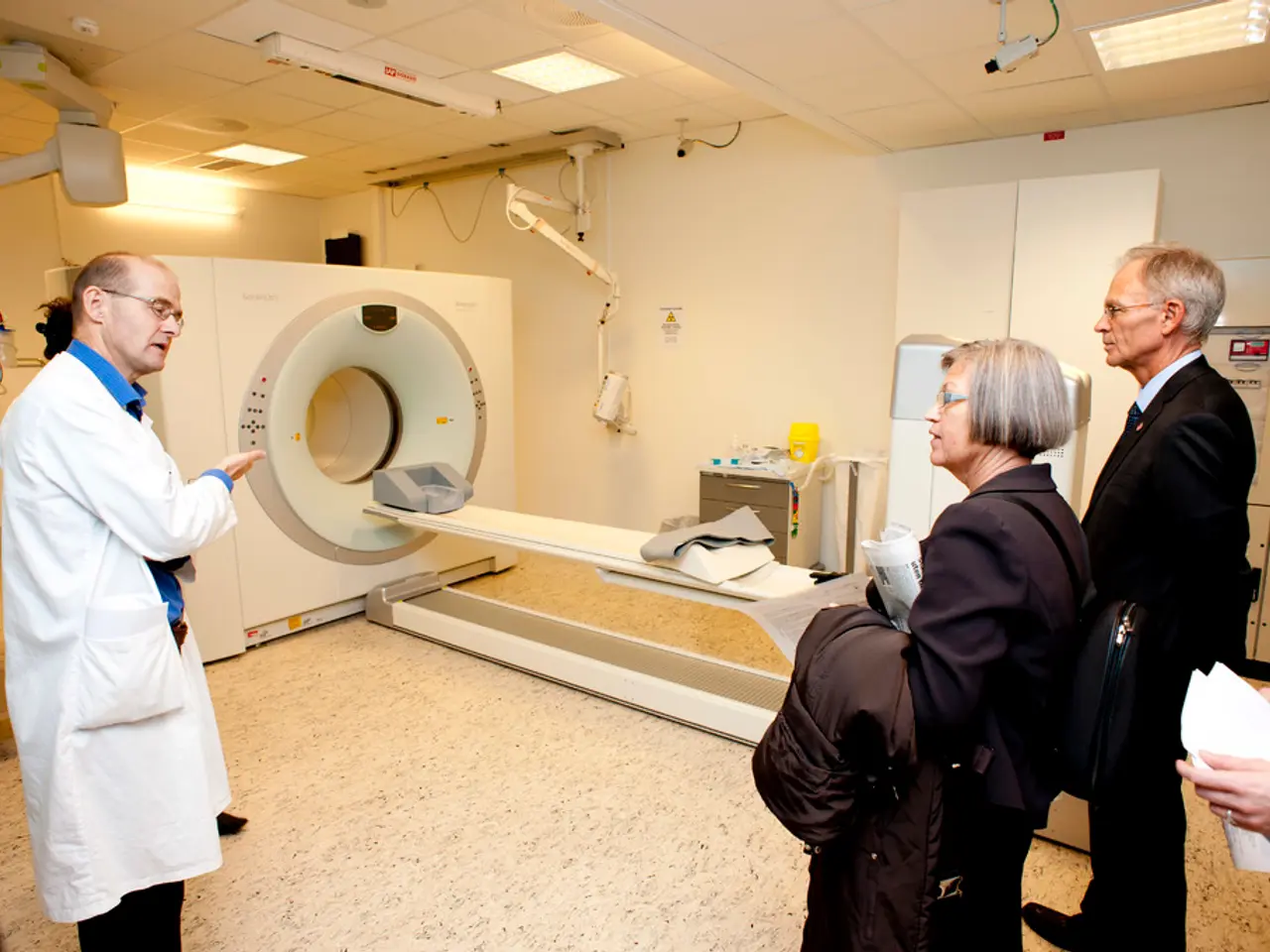change in AlphV's cyberattack on Change Healthcare casts doubt among supporters
The AlphV/BlackCat ransomware group, notorious for its sophisticated attacks on various sectors, has recently targeted critical US healthcare facilities, causing disruptions and threatening patient care continuity.
Last week, the AlphV ransomware group intruded UnitedHealth Group's IT systems, a move that has sent ripples through the healthcare industry. However, UnitedHealth Group declined to comment on the intrusion, extortion demand, and response to the attack.
The FBI is currently engaged with multiple agencies to assist with the ongoing AlphV incident, which has impacted Change Healthcare, a widely used tech vendor in the healthcare industry. Change's recovery efforts remain underway, with some services partially restored but others still offline.
The attack on Change has led to knock-on attacks that are even more damaging, similar to the spree of exploits against the MOVEit file-transfer service last year. As a result, at least five hospital systems with 49 hospitals between them have been impacted by ransomware attacks this year.
AlphV ransomware uses advanced techniques like privilege escalation, sandbox evasion, and strong encryption (AES/ChaCha20), executed via a Rust-written command-line tool that complicates defense and analysis. Its successor, Embargo, shows signs of technical sophistication, possibly leveraging AI/ML to improve attack scalability and phishing lures, intensifying the threat to healthcare entities.
Given the technical complexity and evolving tactics, healthcare organisations must adopt layered cybersecurity approaches including advanced threat detection, endpoint protection, and robust incident response capabilities. Continuous monitoring of ransomware actors’ activities and collaboration with cybersecurity intelligence providers are vital to anticipate evolving tactics.
Data backups and stringent access controls, along with user training to detect phishing, remain essential to mitigate initial intrusion vectors. Since ransomware groups exploit cryptocurrency laundering and TOR-based leak sites, law enforcement and blockchain analytics firms play crucial roles in dismantling their financial networks.
Internal distrust and conflict exist among ransomware groups affiliated with AlphV/BlackCat, such as DragonForce and RansomHub, indicating fractured ransomware-as-a-service (RaaS) ecosystems. DragonForce, an affiliate group, has introduced stricter affiliate rules to mitigate misuse, especially targeting critical infrastructure like hospitals.
Despite law enforcement actions against ransomware groups, they are expected to regroup, and disruptions act as a speed bump to slow things down but not halt ransomware activity. Christopher Budd, director of Sophos X-Ops Threat Research, stated that no one operation is enough to stop the ransomware problem, and new approaches are needed.
The recent disruption effort against AlphV was not pointless, as it gathered intelligence on the criminals and their operations, which will be used to bolster countermeasures against them. The impact of the AlphV attack on Change is more intense due to its status as a widely used tech vendor intertwined throughout the healthcare industry.
UnitedHealth Group acquired Change Healthcare for $13 billion in late 2022, making the attack even more significant. AlphV listed Change on its data leak site and claimed to have stolen over 6 terabytes of data from multiple high-profile partners in the sector. The attack has caused health providers to be unable to verify patients' insurance coverage, process claims, provide cost estimates, or receive payment from some payers.
In summary, AlphV/BlackCat ransomware and its suspected successor Embargo pose a significant threat to healthcare sectors by combining sophisticated encryption with data theft and public exposure threats. Effective countermeasures require a blend of technical defenses, threat intelligence, and operational readiness tailored to this high-level ransomware-as-a-service threat landscape.
- The recent data breach caused by AlphV ransomware has highlighted the need for robust cybersecurity measures in the healthcare sector, as the attack on Change Healthcare has impacted multiple hospital systems.
- Given the advanced techniques used by ransomware groups like AlphV and the threats they pose to privacy, technology, and the continuity of patient care, healthcare organizations should prioritize layered cybersecurity approaches that include advanced threat detection, endpoint protection, and incident response capabilities.
- In response to the ongoing AlphV incident and its impact on the healthcare industry, law enforcement agencies are collaborating with multiple organizations to identify and dismantle the financial networks of ransomware groups, a crucial step towards mitigating the threat of future data breaches.




